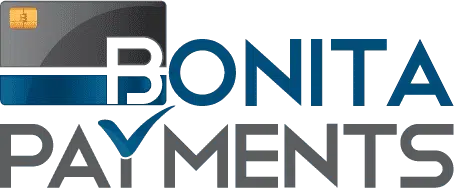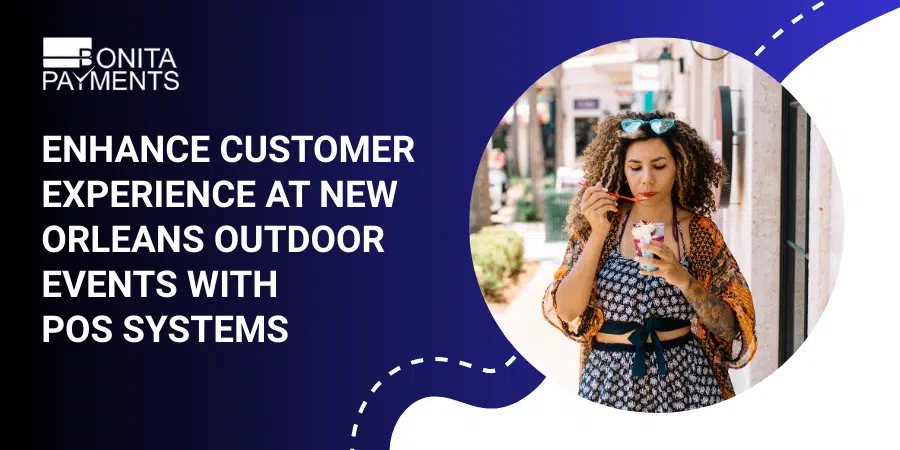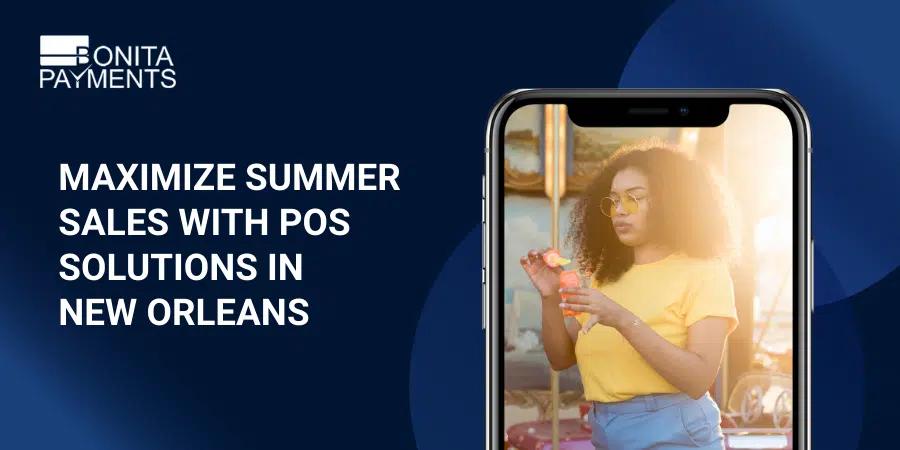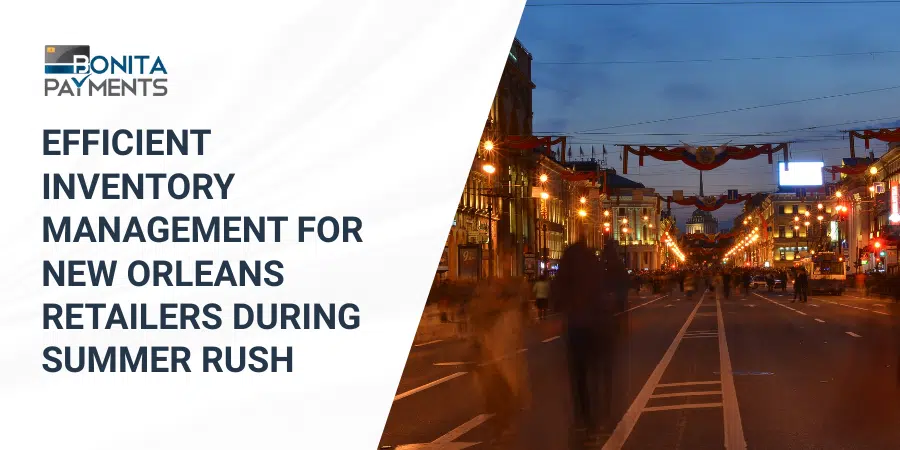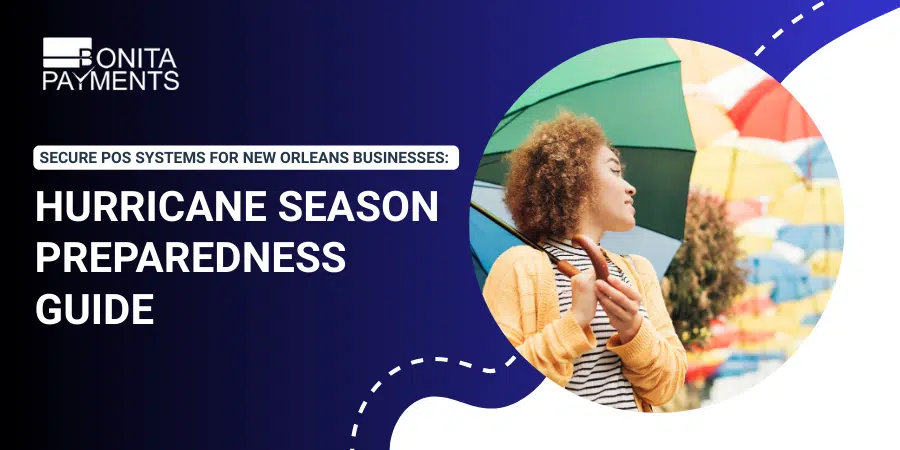A point-of-sale (POS) system is essential for any merchandising-type business. It represents the place where the customer makes their payment – a modern-day version of cash registers. At the same time, advanced point-of-sale systems offer a lot more than just payments processing.
Whether it is a POS system for retail, a restaurant, a market vendor, or another type of business entirely, it can come with a wide range of features specific to that business. POS systems provide state-of-the-art management features such as staff management, inventory tracking, customer behavior analysis, financial and accounting calculations, and more. They have become an indispensable part of a sales business.
If you are reading this post, you are likely interested in learning more about POS systems. Before you do so, you need to set aside some time for extensive planning and research. We will outline everything you need to know for this process – the factors that go into choosing the right POS system, how much it could cost you, and what specific features to look for if you need a restaurant or a retail POS system.
By the end, you will have all the information you need to start looking for a POS provider that will meet all of your requirements.
Components of a POS System
Every POS system consists of two parts: software and hardware. One POS provider may supply you with both at the same time, but you can also choose to buy them separately.
POS Software
Nowadays, you can get cloud-based POS software, which works only with internet access and stores all your data on a ‘cloud.’ This prevents significant data loss if something goes wrong and your system malfunctions.
Aside from accepting payments, POS software allows you access to any combination of additional POS features, such as:
- Advanced management features
- Data reporting and analytics
- Online and mobile payments
- Employee management
- Customer management
- Ecommerce integrations
- Retail and restaurant-specific software features, and more
POS companies typically charge a monthly subscription for using their software, which can be billed annually to reduce costs. The price of POS software depends on how many POS terminals you have. If it’s one terminal in a single location, expect to pay between $50 – 100 a month. If your business has more than one terminal, the price could go up to $100 – 300 per location per month.
If you wish to have an offline mode – meaning your POS software can work without an internet connection – then software installation will be required. POS providers will charge you additionally for this installation and system set-up, and it can range from $600 – 1200 as a one-time upfront payment. After this one payment, you will continue paying the monthly fee you have arranged with your provider.
POS Hardware
Just like you have to select different POS software features that suit your business, you also have to choose the right hardware components. A POS terminal (or several) with the right peripherals could speed up checkout, increase customer turnaround time, and improve your sales. You must consider every aspect of your business when choosing POS hardware.
Here are some of the most common POS terminals:
- Tablets. Not exactly POS-specific devices, iPads and Android tablets are not a bad option for a small business that requires portable POS systems – especially if you already own a couple. However, if you don’t, you might consider investing in an actual portable POS system designed for that purpose, which might prove to be more durable than a simple tablet. An advantage of using tablets is that they can be both portable and fixed if you purchase a tablet stand. The cost of a refurbished iPad or a new Android tablet ranges from $170 – 300.
- Portable POS terminals. Portable systems are great for restaurants and market vendors, for places where each staff member can carry a small terminal inside their pocket or where there is no place for a fixed POS terminal. Portable POS systems are incredibly convenient when you have multiple points of sale in your establishment and would like some flexibility.
- Fixed POS terminals. A fixed POS terminal is rooted in one place. It is usually a touchscreen with all the features of an average cash register, plus additional POS management features. Depending on the screen size you want, a touchscreen can vary from $160 – 190 in price.
What peripherals you need depends on what type of business you run:
- Card reader. Credit card readers are a must since people rarely carry cash around with them anymore. Each POS terminal should have its own card reader to make things more organized and faster during check-out time. You can choose a portable reader, from $20 – 90. Stand-alone card readers are between $115 – 185.
Aside from paying for a card reading device, keep in mind that any credit card processing company comes with a set of processing fees. How high these fees are depends on which payment processor you go for.
- Barcode scanner. Retail POS systems usually require a barcode scanner of some kind. These can be small or medium for $50 – 200. Or they can be large scanners specially designed for supermarkets that can be anywhere from upwards of $2k.
- Cash drawer. Cash drawers are a safe way to store the money you earn. They can be manual drawers – unlocked by a key – or automatic, with a specific trigger that opens them (such as the moment of printing a receipt, for example). Cash drawers cost between $50 – 150, but there are options for an adjoined receipt printer that can go up to $470.
- Receipt printer. You may resort to emailing your receipts to customers, in which case you wouldn’t need receipt printers. However, if emailing is not an option, you can choose a fixed printer for $155 – 545 or a portable one that is usually more expensive. POS systems for restaurants might need kitchen printers that are priced anywhere between $310 – 390.
POS System Total Cost
The total cost of the future POS system for your business is determined by your business size and type, the number of terminals, and what software features and hardware components you want. On top of that, you should also take into account the last piece of the POS system puzzle, which is payment processing.
Whenever your customer uses a credit card in your enterprise, a small percentage of the transaction goes to credit card processors – third-party services that allow you to accept credit cards. This percentage varies from one service to another, but it usually doesn’t go over 2.4% of a transaction.
With all of these options and prices laid out, it is up to you to select the combination that is most compatible with your budget. The total cost of a POS system for small businesses can range from $1k – 2k, while larger, multiple location businesses can expect to pay over $6k. Make sure you compare quotes from different POS providers before you settle on a final decision.
Restaurant POS Systems
Whether you’re running a quick-service or a full-service restaurant, a coffee shop, sandwich shop, ice cream parlor, bar, or a related business, you will definitely benefit from a restaurant-specific POS system.
A restaurant POS system comes with all the usual management features you’d expect: inventory and customer management, sales reports, financial data, employee management, and others. A few options are designed specifically for this industry, and we will take a closer look at the main ones in this section.
- Table management and reservations
Knowing how many tables are occupied, available, or in need of a clean-up is important for front-of-house operations. Table management can be a feature in your next POS solution, where merely glancing at the screen will tell you exactly what the table situation is in your establishment.
Another useful option to have in combination with table management is reservation management. If your business is small enough – so that there aren’t any accidental overrides or errors if two staff members attempt to book a table simultaneously – you can even manage all reservations using nothing but your POS system. Simple and easy!
- Online ordering
It has never been more apparent than during the health crisis of 2020 that a restaurant business requires a reliable online ordering system to thrive. You will have guests who love your food but have no time or the will to visit and eat. You will have those who cannot leave their house for whatever reason. Meeting these customers half-way and still providing them with the delicious dishes you serve is a must.
A POS system for your business could be tailored to accept online orders efficiently. It doesn’t even have to require human interaction. Reducing manual orders also reduces order time and any potential order errors from a human factor.
- Pre-authorized bar tabs
To prevent customers from opening a tab they cannot cover later, you may want a pre-authorized bar tab feature. It will allow the bartenders to save the customer’s card information, verify that it is authentic and that the customer has the right amount of money on it. The tab can then be opened when the bartender is satisfied that the customer can pay for it.
The benefits of asking customers if they wish to open a tab are multifold – if someone is staying longer or having a big get-together, they don’t have to pay each time a round of drinks comes their way. On the other hand, it also encourages customers to extend their stay and purchase more, simply because it is convenient.
- Pour control
Another feature that will eliminate human error, pour control is a fantastic way to get that perfect cocktail every time. Some POS systems allow you to store drink recipes to help your bartenders mix drinks.
POS software will then regulate the amount of alcohol and other ingredients going into a particular drink. Your customers will get a perfect drink no matter who is serving!
Retail POS Systems
Just like restaurant systems, retail solutions also come with features that can drastically improve the way your business operates. Precise inventory management software is crucial, as well as a segment for tracking customer loyalty programs and customer behavior, for targeting your most loyal shoppers.
Aside from these, you may find several other convenient options on your POS system for retail, including but not limited to:
- Quick lookup
If you have POS terminals that will be handled by customers directly, you need to make their process of viewing products logical and easy to follow. However, your staff doesn’t need quite as much time when they’re trying to look up a product. Ensure that your retail POS software has quick keys set up so that your employees can quickly find the product information they need.
A thoroughly explained product offer with an intuitive UX (user experience) is great for customers, but your staff will need efficiency and speed beyond that. A quick lookup feature will save everyone a lot of time they can instead use for shopping and more work.
- Return policy features
POS solutions can also handle product returns if your business deals with them. Buyers are particularly impressed with a simple, hassle-free return policy that doesn’t require much effort on their part. Your retail POS system can take care of that without a problem.
Customize the software to fit your return policy. Specify the return time frame – how many days after the purchase – and whether the customer can get a refund or store credit in exchange. POS system flexibility is key in this case, so that you have all of your options covered and your customers walk away from your store satisfied.
- Bulk product upload
Whenever you get a new shipment of products, you need to enter them into the system. Manual upload takes ages and doesn’t make anyone happy, especially if you have many products in stock. A POS system can have the option of allowing bulk uploads, meaning everything will be done in a single tap on the screen.
During a POS system presentation, ask about these seemingly small but significant features like bulk uploads and quick keys. They are not dealbreakers, but they have the potential to change the workflow for the better.
- Stock order features
Instead of keeping track of dozens of different emails from your suppliers and vendors and perhaps getting overwhelmed by them, you should be able to order more stock through your POS system.
Not only that, but some POS solutions also offer automatic order generation. If you happen to have some items that are always on offer, an auto-fill order feature is another time-saving option.
- Inventory count
Even though we’ve already mentioned how retail businesses require elaborate inventory management, one particular aspect should be emphasized: an inventory counter. This advanced option will enable you to count your inventory digitally as opposed to manually. A scanner will likely be necessary to complete this process.
Some POS systems can be outfitted with alerts, letting you know if you’re low on some items and if others aren’t moving as quickly as they should.
The Best POS System for You
The selection of a POS system all comes down to your business strategy and goals. If you’re a quick-service enterprise, you will want to emphasize speed and customer turnover. If you run a full-service restaurant, your main focus will be customer service and menu and table management. If you’re a shop owner, inventory management is of primary importance.
When considering the type of POS system you need, don’t overlook the two main components: software and hardware. In terms of cost, card payment processing fees should also be taken into account. Choose the features and hardware peripherals that will genuinely aid your business, free up time for your employees, and increase customer satisfaction.
For restaurant businesses, look for features like table and reservation management, pour control, bar tab pre-authorization, and online ordering. At the same time, make sure that all the other management options will support your employees and customers.
For retailers, software features that cut time and increase efficiency are the goal. Quick keys in your system will make your employees work fast, while bulk uploads and stock ordering through the POS system will prevent inventory errors.
Finally, make sure that the reporting and analytics feature delivers all the right information to you daily, weekly, and monthly. This will determine how you lead your business into the future.
Whether it’s retail and restaurants or another industry, it is understandable if choosing the right POS system seems like a daunting task. We at Bonita Payments would love to help, as getting to know your business and tailoring a POS system just for you is one of our specialties. Take a look at what we have to offer. Whether you’re in retail, restaurants, or another industry entirely, we will be more than happy to provide you with just the right POS system to help your business grow. Contact us for more information or to request a quote.
